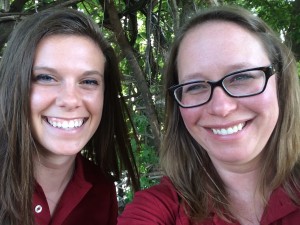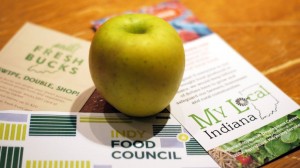by Molly Trueblood
In case you haven’t heard, Butler CUE received a grant from the National Science Foundation last fall to create an outdoor science museum exhibit about Indianapolis’ waterways. This innovative project will use interactive art forms to convey science topics to museum visitors.
We’re well on our way to designing and implementing the first installations and performances next summer, and one component of our project includes “gathering baseline data” on what communities already know about the science of the waterways.
To gather this information, we’re conducting surveys at each site, having conversations with neighbors about places in their neighborhoods, and executing a long-term focus study with families. Though different from your typical university science study, it has been a great way to learn more about how social sciences study human behavior and change.
I’ve been lucky this summer to work with four interns on this portion of the project. David Ediger, Katie Waskom, Julia Wilson and Kevin Rex have all gone above and beyond in helping to administer and manage the survey process. I’m also pleased that they’ve been able to get out in the community, learn more about social science research, and help with the data crunching.
We have some great partners in this research as well – Johnny Fraser from New Knowledge Organization is our coach and champion. Debbie Nichols, Jessica Murphy and Gabe Filippelli from IUPUI are also integral to our efforts. They organize our times out in the field, and analyze the data we gather. We are also becoming fast friends, as four hours together lends to many interesting conversations. I’m really proud to be part of a university partnership such as this.
One of the parts I most enjoy about this project is getting out to visit with neighborhood folks. Even when administering surveys, neighbors share their experiences, values and priorities of their communities. We get to learn about the places where we live and work, in partnership with neighbors. It’s a pretty rewarding part of the job, if you ask me.
Stay tuned for some exciting developments about this project in the coming months!
Molly Truebood is community organizer with the Center for Urban Ecology working on a project funded by the National Science Foundation.


